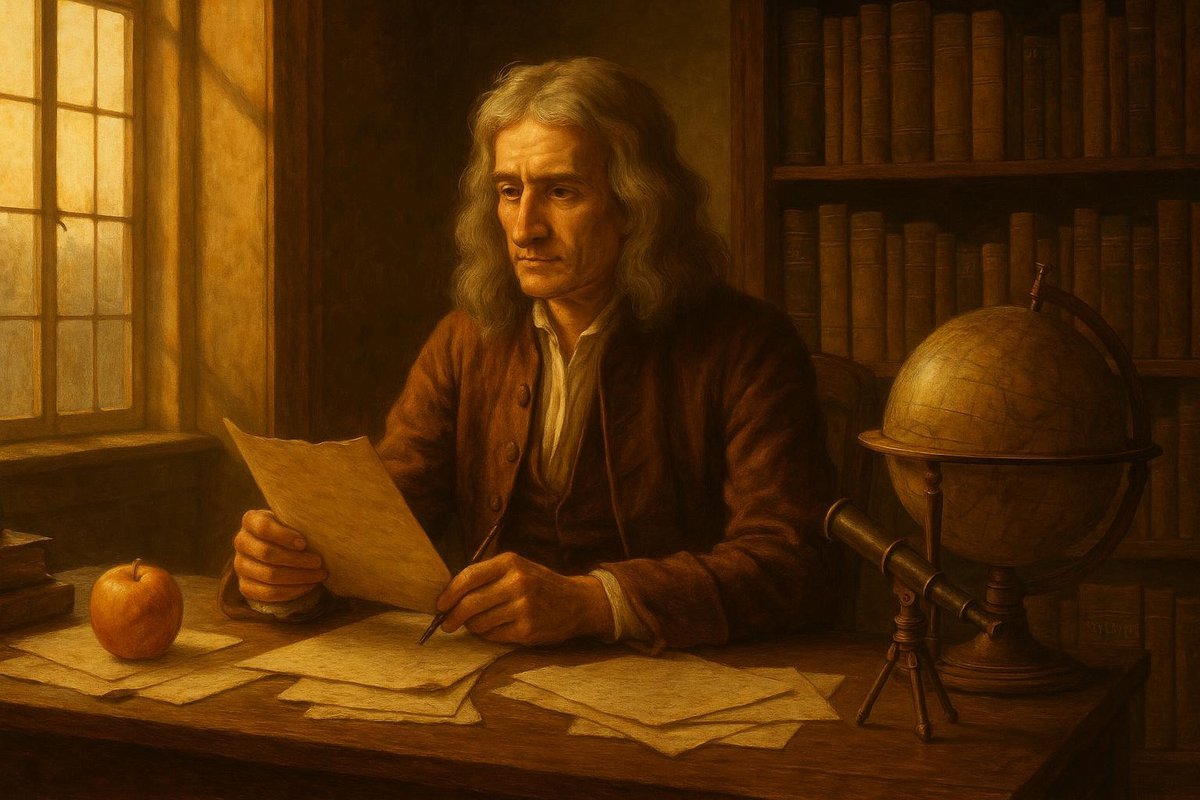
Have you ever wondered why an apple falls to the ground while the moon stays in orbit? This question, simple yet profound, has intrigued thinkers for centuries and ultimately led to one of the most pivotal discoveries in science: gravity. The tale of how we came to understand this invisible force is not just about apples or falling objects — it’s a journey through history, filled with curiosity, inspiration, and the relentless pursuit of knowledge.
The Problem Context: A Puzzle of the Cosmos
Before gravity became a household term, the natural world was a puzzle missing a few key pieces. In ancient times, many people believed that celestial bodies moved in a harmonious dance, guided by divine or mystical forces. Aristotle, a prominent Greek philosopher, posited that objects had a natural place in the universe and that heavenly bodies moved in perfect circles, distinct from earthly objects.
- Objects were thought to have a natural tendency to stay put or move in straight lines.
- The heavens were considered separate and immutable, governed by different laws from those on Earth.
Despite these beliefs, inconsistencies remained. Why did planets sometimes reverse their paths in the sky? Why did objects fall at different speeds? These questions lingered, waiting for a new perspective.
Theoretical Breakthrough: Newton’s Revolutionary Idea
Enter Isaac Newton, a man whose curiosity was as immense as his intellect. In the late 17th century, Newton proposed a radical idea: the same force that pulls an apple to the ground also keeps the moon in orbit. But how did he arrive at this conclusion?
- Newton considered the motions of celestial bodies and earthly objects as two sides of the same coin.
- He introduced the concept of a universal law of gravitation, explaining that every object in the universe attracts every other object.
This groundbreaking theory unified the heavens and the earth under one set of laws. No wonder it reshaped the scientific landscape, allowing humanity to predict movements with unprecedented precision.
Supporting Evidence: Proving the Unseen Force
Newton’s idea was revolutionary, but ideas alone are not enough. They need evidence. Newton’s laws of motion and gravity were tested against the movements of planets, and they held true. Observations by astronomers like Johannes Kepler, who noted the elliptical orbits of planets, provided crucial data that supported Newton’s theories.
- Newton’s calculations were consistent with Kepler’s observed orbits, offering mathematical evidence for his theory.
- His ability to predict celestial events like eclipses further solidified his theory’s credibility.
This evidence transformed a bold hypothesis into an accepted truth, marking a giant leap forward in our understanding of the universe.
Modern Relevance: Gravity’s Lasting Impact
Why does this centuries-old discovery still matter today? The principles Newton laid out continue to underpin modern physics and engineering. Whether launching satellites or planning interplanetary missions, gravity remains a crucial factor in our technological achievements.
- GPS systems rely on precise calculations of gravitational forces to provide accurate positioning.
- The study of gravity even inspires contemporary theories, like Einstein’s general relativity, which further expanded our understanding of this fundamental force.
As time goes on, the story of gravity reminds us of the power of human curiosity and the endless possibilities that lie ahead when we dare to ask, “Why?”
In conclusion, the discovery of gravity was not just about understanding why things fall; it was about uncovering the elegant laws governing our universe. Newton’s insights opened doors to a new era of scientific exploration, a legacy that continues to shape our world.
Fuel Someone Else’s Curiosity
Feel inspired? Share this story of discovery with others. Let’s ignite the spark of curiosity and encourage discussions about the wonders of science. Who knows? Your enthusiasm might just be the catalyst for the next groundbreaking idea.

Leave a Reply